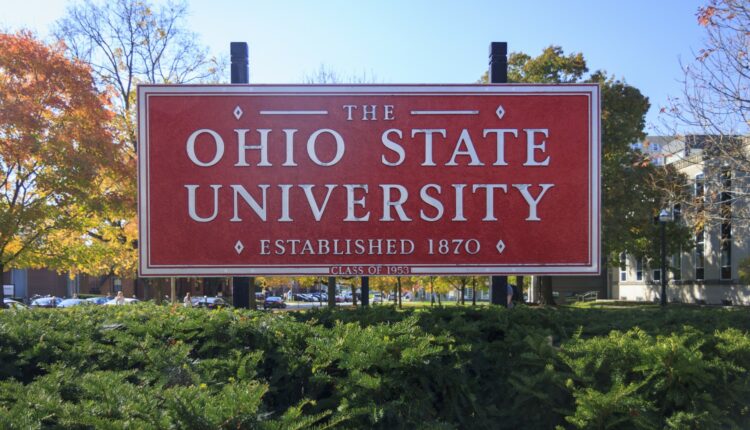Ohio State University: Joint patrol increases off-campus police presence
When evening sets on Ohio State’s Columbus campus, Officer Doug Welker’s workday is often just beginning. The Ohio State University Police Division (OSUPD) officer has transitioned to a full-time role with the joint patrol program, meaning he works 7 p.m. to 5 a.m.
“We ride around with a Columbus officer and take runs on the east side of High Street, we respond to other calls and have a proactive presence,” Welker said.
Joint patrol pairs OSUPD officers with Columbus Division of Police (CPD) officers to patrol the off-campus area known as the University District. It is not a new concept, but it is back after a brief hiatus. Following the retirement of its lone joint patrol officer a few years ago, University Police paused the joint patrol program and used targeted crime interdiction programs during peak times.
“I think it’s important for a few different reasons,” said CPD officer Shawn Dye. “[Ohio State] has access to resources that CPD may not have. They have a fairly large police force in a smaller area, and they have cameras that are all over the campus area.”
Beginning in July 2022, university police expanded joint patrol to include three OSUPD officers working full-time to patrol the University District while partnered with CPD officers. Welker is joined by fellow OSUPD officers Tom Schneider and Ari Ross in the joint patrol program.
“[Ohio State] President [Kristina M.] Johnson and other university leaders continue to emphasize safety and have expanded our budget to allow us to hire and train additional police and security officers,” said Monica Moll, Ohio State’s director of public safety. “We now have an authorized strength of 70 sworn police officers and dedicated three to full-time joint patrol duties to expand our police presence off campus.”
Sworn police are supported on and off campus by non-sworn security. The Buckeye Block Watch Program patrols seven nights per week, and Campus Service Officers also assist with campus and non-campus vehicle patrols, to offer a second set of eyes and ears. Both are trained to report suspicious activity or issues to police.
Expanding the joint patrol initiative allows officers to respond and offer enhanced support.
“[Ohio State] has a lot of resources available to students, including students who live off campus,” Welker said. “If an [Ohio State] officer responds to a call for service on Columbus Police’s jurisdiction, then the [Ohio State] officer is able to provide those students those resources and point them in the right direction.”
Joint patrol is part of a comprehensive approach to off-campus safety that includes improved lighting, additional surveillance cameras and license plate readers, and expanded non-police security patrols that bring university resources into the areas where many students live.
Welker says that he and his fellow OSUPD and CPD officers recognize that this combination of resources is already making a difference.
“The university has been doing a lot to increase security off campus and that is a big deterrent to crime,” Welker said.

